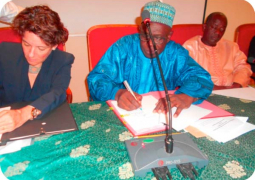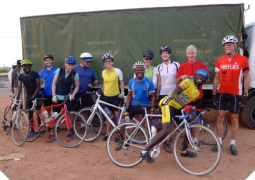The
nation should be going to the polls on 6 April, which is about two weeks from
now, as candidates are currently busy criss-crossing the country canvassing
support and votes.
While
we keenly monitor the process, a salient point raised by the IEC Chair at the
commission’s recent meeting with the security forces is that it is determined
to ensure that the upcoming elections are free and fair, as usual.
In
fact, it has also just put out a clarification that there is no “Coalition or
Independent Coalition candidate” registered by the IEC to contest in the
elections, warning all those candidates making such pronouncement or using such
a nomenclature to desist from it or “risk getting their nomination revoked”.
The
IEC has also reminded all stakeholders to be tolerant with each other “so that
we can have a peaceful election”.
Meanwhile,
we would like to highlight several factors that are always raised or considered
when it comes to free and fair elections.
These
start with the integrity of the electoral commission to ensure that a
level-playing field is there for all to partake well, to pave the way for a
free and fair or corruption-free electoral process, which include the voter
registration process, campaigning and the actual voting.
It
is good to state that much of this was observed by the IEC for the December 1,
2016 presidential election, except for the hitch that resulted from the
transposition of the Basse votes, and subsequently the final results, which
were actually swiftly corrected.
It
is expected that for the parliamentary elections such grave error would be
seriously guarded against.
Meanwhile,
the expressed determination to ensure free and fair elections by the IEC is
appeasing, and should be encouraged and supported to ensure that our elections
in The Gambia are never found wanting.
Although
we are aware of the type of person our exiled former leader is, we can also say
the ground for him to take advantage of the situation was laid by the IEC, who
made that grave mistake in figures/results posting.
However,
the Election, as stated by the IEC Chair, is the business of all, so
essentially all stakeholders and the electorate are encouraged to fully partake
in the parliamentary electoral process.
That
is why we agree with the IEC Chair in stating that: “The IEC continues to make
the clarion call that election is the business of all. In view of this, the
commission wishes to fully collaborate with all stakeholders in the electoral
process.”
A
free and fair election, we also note, depends on freedom of speech, assembly,
association and movement to ensure all members of the electorate in the society
participate in elections as enshrined in sections 25 and 26 of the
Constitution.
Free
and fair elections depends on a transparent electoral process, impartial
electoral commission, equitable electoral legislation, equal opportunities for
all participants, absence of intimidation, application of the proper procedures
and acceptance of electoral results, as confirmed by the IEC Chair himself.
This,
we believe, should be the order of the day as we proceed towards the polling
day for the current Parliamentary electoral process.
“I
like honesty and fair play.”
Marcus
Garvey



